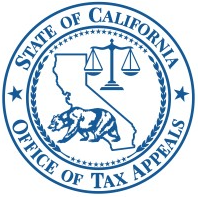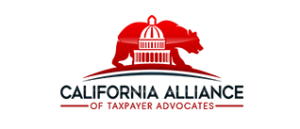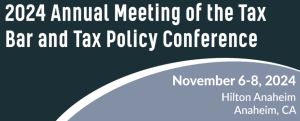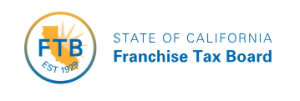Articles Posted in California
California Legislature Advances Broad Federal Tax Conformity Bill (SB 711)
Senate Bill 711 (S.B. 711) would update California’s conformity date to the Internal Revenue Code (IRC) from January 1, 2015, to January 1, 2025. If enacted, this change would apply to taxable years beginning on or after January 1, 2025, and would align California tax law with numerous federal provisions enacted over the past decade. Notable provisions include:

California Governor Releases 2025 Budget Proposal to Move Banks and Financial Corporations to Single-Sales-Factor Apportionment
On January 10, 2025, California Governor Gavin Newsom released his January Budget Proposal for the 2025 – 2026 fiscal year. Notably, Governor Newsom’s budget would increase tax revenue by requiring banks and financial corporations to move from an equally weighted three-factor formula, comprising property, payroll and sales factors, to a single-sales-factor formula for purposes of apportioning income to the state. Agricultural and extractive businesses would continue to use the three-factor formula. The proposed change would take effect immediately, beginning with tax year 2025. Continue Reading ›
Technology Transfer Agreements: An Update on Latest Developments in California
The California Department of Tax and Fee Administration (CDTFA or Department) hosted its third workshop (Workshop III) on December 9, 2024, to discuss and receive input on technology transfer agreements (TTAs).
On January 22, 2025, the CTIA (formerly the Cellular Telecommunications and Internet Association) submitted comments. The California Taxpayers Association (CalTax) and the Silicon Valley Leadership Group (SVLG) also submitted their comments in a joint letter.

CalTax 99th Annual Meeting
SALT partner Jeffrey Vesely will be presenting at CalTax’s 99th Annual Meeting on March 6.

California OTA Denies Credit for NYC Business Taxes in Precedential Opinion
In the Appeal of Mather, the California Office of Tax Appeals (OTA) held in a precedential opinion that New York City’s (NYC) Unincorporated Business Tax (UBT) was not a tax “imposed by and paid to another state,” as required to claim the Other State Tax Credit (OSTC), because New York State (NYS) did not require NYC to impose the UBT. The OTA also held that the NYS Metropolitan Commuter Transportation Mobility Tax (MCTMT) met the requirements to claim the OSTC, but that the taxpayers failed to substantiate the amount of their claim.

California Imposes Further Disclosure Requirements for Local Sales Tax Sharing Agreements
On September 28, 2024, California enacted Assembly Bill 2854, which imposes new disclosure requirements on local agencies (i.e., chartered or general law cities and counties) that have entered into local sales tax sharing agreements with retailers. Generally, pursuant to a local sales tax sharing agreement, a retailer will agree to establish a new sales or fulfillment center in a local jurisdiction and source its sales to that local jurisdiction. In exchange, the local jurisdiction will provide the retailer a rebate on the local sales tax revenue generated for the local jurisdiction.

2024 CATA Annual Conference
Pillsbury SALT partner Craig Becker will be presenting at the California Alliance of Taxpayer Advocates 2024 Annual Conference on December 12.

2024 Annual Meeting of the Tax Bar and Tax Policy Conference
Pillsbury SALT attorneys Carley Roberts, Robert P. Merten III and Jeff Phang will present at this meeting, which will take place November 6-8.

California’s Market-Based Sourcing Amendments; Public Hearing Requests Due by Oct. 16
The California Franchise Tax Board (FTB) announced it has initiated the formal rulemaking process to amend Regulation Section 25136-2, which governs the sourcing of receipts from services and intangible property. The proposed changes would apply to taxable years beginning on or after January 1, 2024. Continue Reading ›
Continue Reading ›
 SeeSALT Blog
SeeSALT Blog


